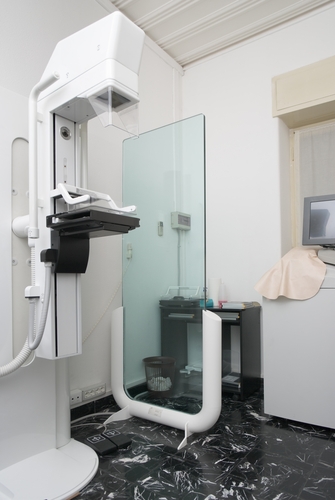A large amount of health care reform has aimed at making patients more responsible for their own care-related decisions, such as choosing treatment pathways and keeping up to date on any complications after care has been administered.
One researcher from the University of Kentucky is developing a tool that would help persons at-risk of lung cancer navigate CT screenings through an online shared decision-making process. Jamie Studts, Ph.D., from the school’s department of behavioral science and the Cancer Prevention and Control Program at the Markey Cancer Center, believes that the decision to undergo screening should be made after being well-informed of the medical imaging protocols and be aligned with patients’ personal values.
“The goal is to help people interpret what they learn in the context of what is important to them regarding their goals in health,” Studts said. “They will learn about lung cancer screening options, benefits, harms and uncertainties associated with the modality.”
The online tool will provide patients with accurate clinical information about the screening process and calculate feedback tailored to specific individuals. Users can review a list of pertinent questions regarding lung cancer screening that allows them to engage in useful conversations with their primary physicians about the benefits and inherent risks of the process.
Following its initial stages, the next step will be to hold clinical trials with the tool to determine its efficacy.
Meeting low-dose standards
According to FierceMedicalImaging, the Medicare Evidence Development and Coverage Advisory Committee administered a low-confidence recommendation for reduced dose CT screening for high-risk individuals in April 2014. The panel’s decision countered evidence from the U.S. Preventive Services Task Force released in December 2013 that reflected a higher confidence in the process.
Combating cancer in its earliest stages gives patients the best chances for survival, especially when the disease is localized to one area of the body. Screenings for these cancers – breast, colon, prostate, etc. – are seen as viable avenues for saving lives through rapid detection. However, lung cancer is a far more complex screening process due to physical and psychological consequences of screening.
With the decision-making tool from Studts, patients could have a better idea of what to expect during screening. The instances of false positive results and harmful radiation exposure might turn patients off, but with accurate information and informed opinions from experts, they can decide the best course of action.
Contact Viztek for more information.
Ronny Bachrach
Latest posts by Ronny Bachrach (see all)
- Konica Minolta Debuts First-of-Its-Kind Digital U-Arm System at AHRA - July 27, 2016
- Researchers Detect Signs Of Stroke Risk Using MRI - June 27, 2016
- Imaging Biz: Q&A with David S. Channin MD: How to Make PACS Patient Centered - June 22, 2016










